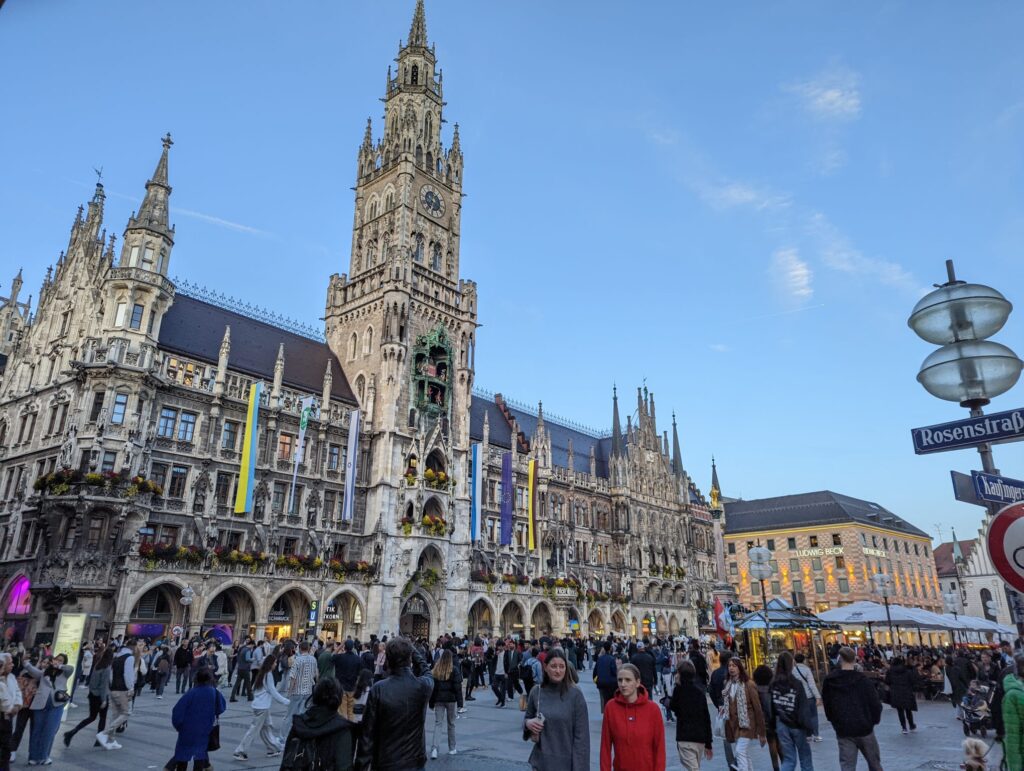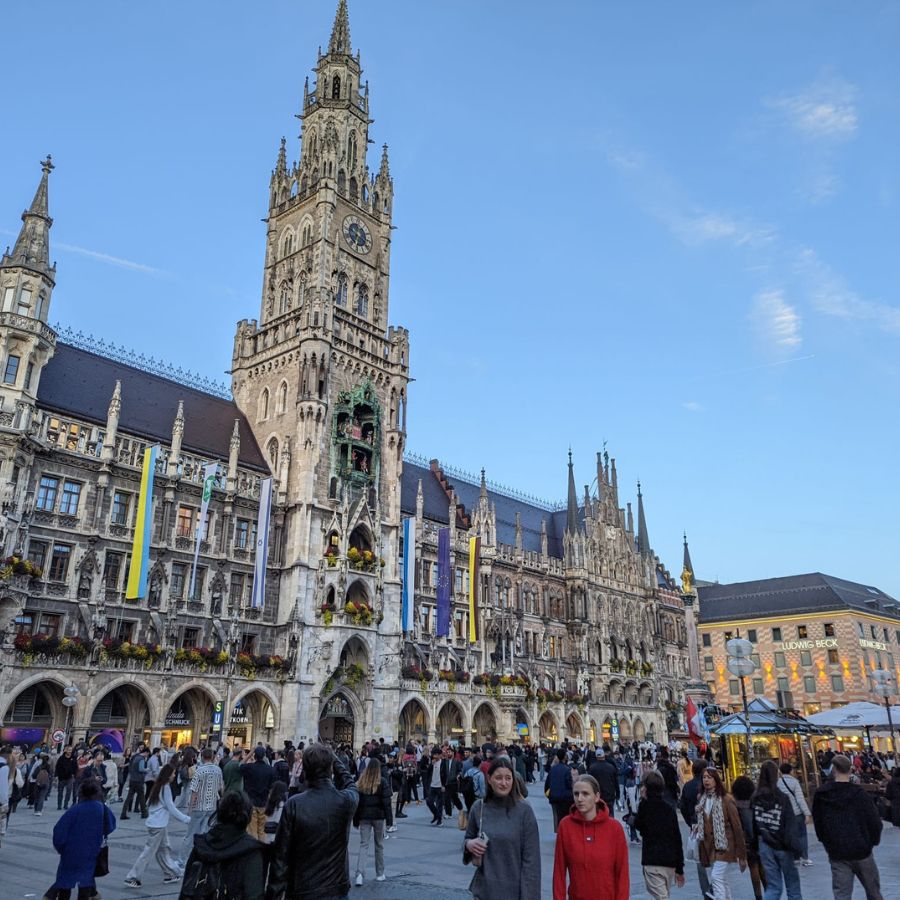
Last week, we visited Munich. One afternoon, I strolled through Marienplatz, a popular tourist spot. Suddenly, the sound of bells rang out from the town hall, drawing a large crowd, all with their phones ready to capture the spectacle. Multiple bells chimed in harmony, creating a playful symphony. In the tower, a collection of human-like mechanical figures began to twirl around, mesmerizing the audience. After about 15 minutes, a golden bird appeared at the top, signaling the end of the performance.
The town hall is an impressive neo-Gothic structure built in the late 19th century, perfectly reflecting Munich’s rich history. Once the capital of the Kingdom of Bavaria, the city is renowned for its arts, architecture, scientific achievements, and, of course, the beer-fueled Oktoberfest. Over 8 million tourists flock to Munich each year, finding memorable experiences in its museums, churches, restaurants, and diverse beer selections. Visitors also enjoy easy access to the snow-capped mountains for day trips.
All of this sounds wonderful, but despite the charm of the city, I couldn’t help but feel unsatisfied. Watching the crowd gather under the town hall’s tower to witness the dancing figures left me wondering—is this all the material world has to offer? While tourist attractions can be beautiful, they often lose their magic quickly. People move on to the next destination, shop, or restaurant, continuing a centuries-old pursuit of fleeting joys and thrills. Yet, when the objective is reached, it often results in a feeling of emptiness and fulfilment.
The material world provides only temporary pleasures, and without something deeper, like spirituality, these experiences can feel hollow. True contentment comes from balancing these moments with inner reflection and finding a sense of meaning that goes beyond what money can buy. Without that deeper connection, the charm of a few ringing bells will always feel incomplete.

